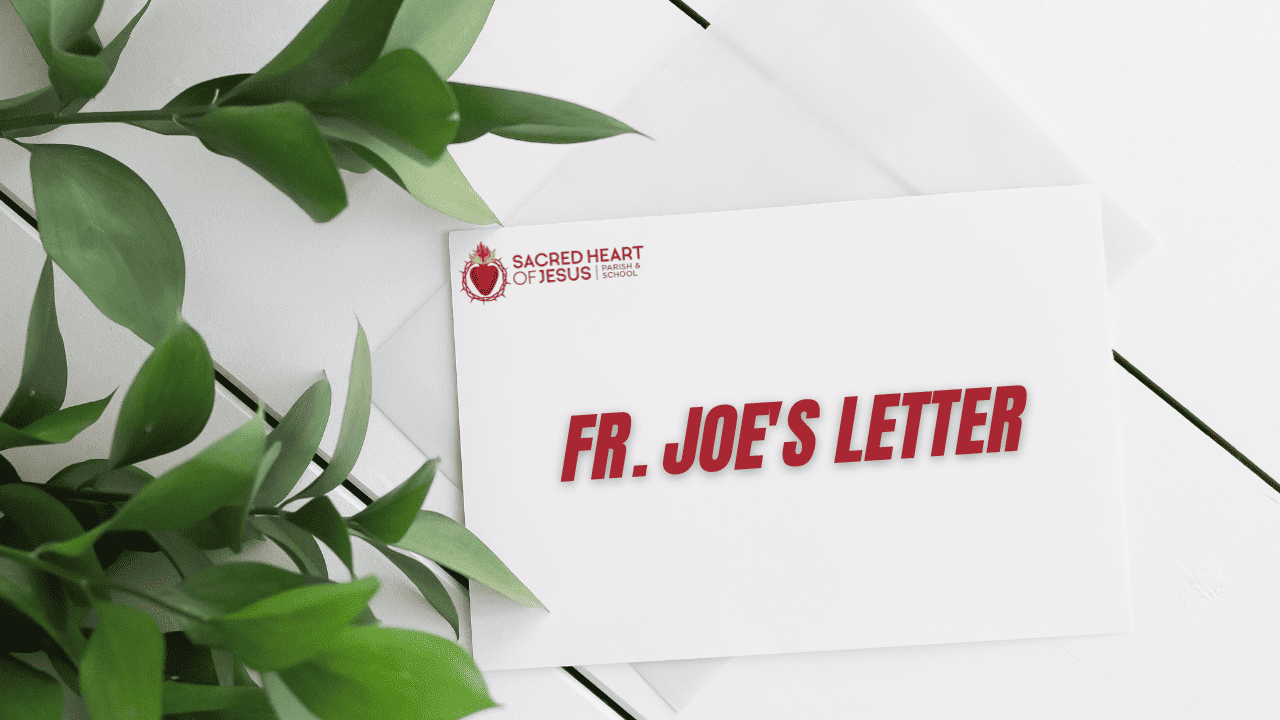Tuesday, August 26, is the first day of school for the students here at Sacred Heart School. I am sure it will be a very exciting time for parents and children. As a new school year begins, it may be a good time to reflect on how very important our school is to the parish community as a place not only of education and learning, but a place where our children have the opportunity to come to know Jesus Christ and the love that He has for them. Our children do not only learn about Jesus, but they come to know Him as a person who loves them more than any of us can ever imagine.
In the world we live in, where people often try to shut God out of any public place, it is very important that we can maintain our Catholic schools where we welcome the presence of God and make Him the center of our lives. Here we encourage and provide a place for prayer and in our public schools prayer is not allowed. Here we teach our children about God who created us, redeemed us, and revealed His Word to us; in the public schools there is no place to learn of God or all that He has done for us. One has to wonder where all this will take us and our country. If we cannot see where it has already taken us, one might wonder why people have their eyes closed and what it will take to open them up again. Maybe we are so focused on our own lives and what will work for us that we fail to see the condition of our society. It just makes me wonder what it will take to get more people to use the great gift that we have in our Catholic schools.
Some people may think that the tuition is too expensive and that may have been true a few years ago, but now it is not thanks to Ed Choice and the Angel Scholarship Fund as well as our own Tuition Assistance Program. You can find all the information you need about these programs on our parish website.
The Angel Scholarship Fund is another way of using our tax dollars to support Catholic Education in the State of Ohio. We have been publicizing this for a few years now. This allows you to divert part of your Ohio Income Tax to the school of your choice. Each Ohio taxpayer can divert up to $750 of their taxes to the Angel Fund. This is really a wonderful way that everyone can help Catholic Education in the state of Ohio. I would dare say that there are several hundred Ohio taxpayers in our parish family to say nothing of the several hundred more family members and friends that can also designate Sacred Heart as a recipient of this tax diversion. Over the past few years, we have had only a hundred or so people take advantage of this easy way to support our Catholic schools, and it comes out of the state’s pocket and not yours.
Please give this some thought and get on board. Invite your family and friends to join in as well. All you have to be is an Ohio State taxpayer. We could do so much more with our facilities and our programs here at Sacred Heart School and Parish. Please pray and think about it. Again, all the information is on the parish website.
THAT MAN IS YOU! This is a program for the men of the parish that will begin on Wednesday, September 17. This year’s program is entitled THE FIGHT FOR FAITH. This can be a most helpful program to help the men of our parish to engage in this fight for faith in our culture. A fight that is going strong at so many levels of our society. We need to know that this is a real fight for our souls, and the souls of our families are at stake. The Church gives us all the all we need to fight for our faith with sacraments, prayer, the Word of God, and the catechism. We need to know how to use them and we need to stand together in tis fight. More information is in the bulletin.
Our religious education classes for the youth of our parish will start soon. This is a very important of our parish as we strive to pass on our Catholic Faith to our children. It is only for an hour or so a week, so it is not a really enough time to do what is really needed. This makes the part of the parents an absolutely vital part of this process. It is important that parents spend some time each week going over the lessons with their children and talking about the importance of our Catholic Faith in our everyday lives making sure that we pray with our children and taking them to Mass EVERY Sunday.
ROOTS for grades K to 5 begins September 7, at 9 AM.The Vine for grades 6, 7, 8, on Monday evenings beginning September 8, at 6:30 PM
Ablaze for those preparing for Confirmation will begin on Sunday, September 14, at 9 AM and will meet the second Sunday of each month from 9 to 10:15 AM
10:10 is our youth ministry program for high school students. They meet on Sunday evenings at 6:30 PM.
We have some very good programs for our youth to help them grow in the Catholic Faith. There are many adults that help out with the programs, but we can always use some more. If you are interested in getting involved, please call Abby Cook or Maggie McCarron at the parish office.


